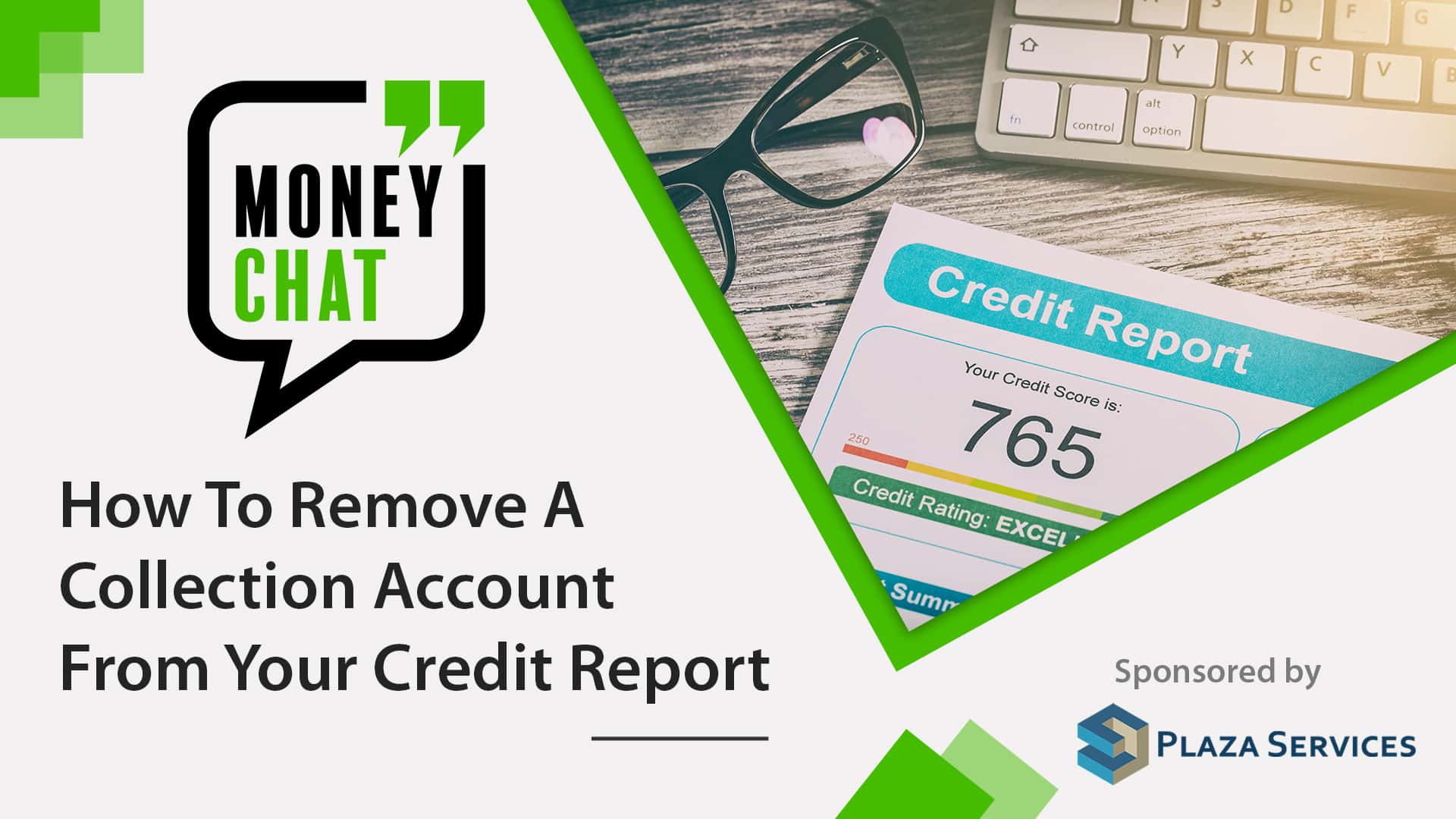
How To Remove A Collection Account From Your Credit Report
Collections can be an isolating experience. With new organizations contacting you for repayment of your debt, information about a new account on your credit report could be the last thing on your mind. Collection accounts are often more straightforward to resolve than one would imagine and can lift the burden for future credit lines immeasurably.
In this Money Chat, we will help you understand how you can remove a collection account from your credit report.
Repayment
The most straightforward way to remove a collection account is to repay the monies owed. A simple concept, yes, but almost all collection accounts are removed from your credit score once the final payment is made. Before you begin repaying the account, it is important to call the collection agency or creditor that is trying to collect. Asking for a letter of validation will help you understand what the debt is and how you should repay it.
Here’s the information you should request to validate the debt:
- Information about the original account and who the original creditor was,
- What the total amount of debt is.
Once this information is collected, you can move on to the next few stages of repayment.
Communication
Collection agencies are not collecting on your overdue accounts to spite you. It is important to communicate with the agency collecting your debt because, in most cases, the agency will work with you to set up a repayment plan that meets your budget, schedule, and needs. Almost all collection agencies have comprehensive payment plans that allow you to make payment plans over the phone, by mail, or even online using any device you wish.
Working together is critical. Once you and the agency have a plan in place, and written agreements on a repayment schedule, you can slowly work down your debt to have it removed from your credit report in a more timely manner.
If repayment has been met and your debt is clear of any further amount, ensure that the debt has been removed from your credit report. If it hasn’t been, you can write a letter asking the creditor or collector to remove this information as a “goodwill deletion”. Simply identify the debt, and point out that it has been paid and that you’d like them to remove it. This step rarely has to be taken, but some agencies will go the extra mile to directly reach out to the credit bureaus on your behalf to have the account removed.
Negotiating Debt
In some cases, collection agencies may have “fast-tracked” ways to remove the account from your credit report through pay-for-delete plans. These plans simply mean that after a brief negotiation period, if you and the agency come to an agreement on a lump sum repayment of your account, or a portion of the account, the agency will delete the account that day.
If you are seeking this type of agreement, ensure that the agreement is in writing and also make sure they will remove both the late payment information and the collection account.
The Waiting Game
The last way to have a collection account removed from your credit report is simply to wait. However, this is not a recommended practice. In general circumstances, all stagnant credit history is removed from your record after seven years. If you choose, approximately seven years after the account first appears on your credit report, it will be removed.
It is vitally important to understand, however, that just because the initial “late payment” will be removed as a negative account on your credit report does not mean the statute of limitations has passed on your debt, or that you’re free from collections. Creditors and collection agencies will most likely still have full authority to seek repayment and can use the courts to legally bind you to a repayment schedule that is often collected through wage garnishments rather than through a worked-out plan.
Each state has its own laws that govern the statute of limitation on debt. Make sure you understand your responsibility to pay old debts based on your state’s laws. If necessary, seek counsel from a lawyer to make sure you are compliant with your debt obligations and will not end up paying more than required.
Communication is Always Key
Whether you have a small debt you can repay through a few months, or a large debt that came from a car, home, or boat purchase, it is important to speak with the agency or creditor collecting your account. In almost all cases of collections, those seeking repayment on your overdue accounts will work with you to ensure all parties are satisfied with how payments will be scheduled. Letting your accounts sit for months or even years hoping that the debt will be forgiven, ignored, or forgotten about often leads to more complications.
Free Financial Literacy Resources
To understand the ins and outs of the credit life cycle and how accounts are distributed, paid, and removed from credit reports, visit Receivable Info’s Money Chat series. There are dozens of free, easily accessible financial education resources for consumers to explore to avoid uncertainty as they navigate debt. If you want to learn more about financial literacy or your rights as a consumer, please visit the Receivables Info Resources Page.
Have an idea for a Money Chat topic?
We want to hear from you! If you have a suggestion for a future Money Chat topic, please email us at [email protected].
The information contained in this article is meant to serve as general guidance for consumers and not meant to serve as comprehensive financial advice. For questions about your individual circumstance, finances, or accounts, please contact your creditor(s) and/or financial advisor directly.
Thank you to our sponsor, Plaza Services, LLC
Plaza Services, LLC is a nationally licensed, professional receivables management firm located in Atlanta, GA. We are a Certified Receivables Business (CRB) by Receivables Management Association International and specialize in the acquisition and servicing of consumer and commercial portfolios. Plaza Services delivers quick portfolio evaluations, seamless transaction execution, and clear accountability after the sale. As a SOC 2 certified receivables management firm, we are committed to the security, confidentiality, and safety of our consumers’ information.





